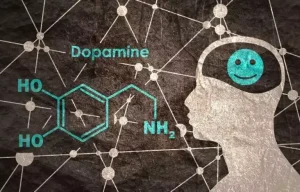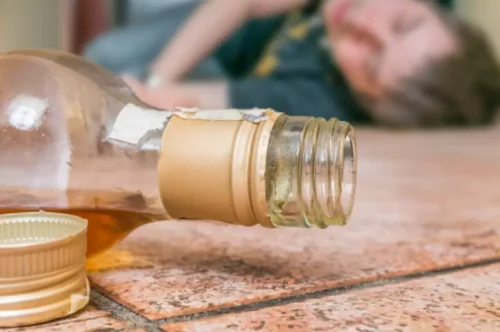
In Europe, about half (44–46%) of individuals seeking treatment for AUD have non-abstinence goals (Haug & Schaub, 2016; Heather, Adamson, Raistrick, & Slegg, 2010). In the U.S., about 25% of patients seeking treatment for AUD endorsed nonabstinence goals in the early 2010s (Dunn & Strain, 2013), while more recent clinical trials have found between 82 and 91% of those seeking treatment for AUD prefer nonabstinence goals (Falk et al., 2019; Witkiewitz et al., 2019). The results of the Sobell’s studies challenged the prevailing understanding of abstinence as the only acceptable outcome for SUD treatment and raised a number of conceptual and methodological issues (e.g., the Sobell’s liberal definition of controlled controlled drinking vs abstinence drinking; see McCrady, 1985). A “controlled drinking controversy” followed, in which the Sobells as well as those who supported them were publicly criticized due to their claims about controlled drinking, and the validity of their research called into question (Blume, 2012; Pendery, Maltzman, & West, 1982). Despite the intense controversy, the Sobell’s high-profile research paved the way for additional studies of nonabstinence treatment for AUD in the 1980s and later (Blume, 2012; Sobell & Sobell, 1995). Marlatt, in particular, became well known for developing nonabstinence treatments, such as BASICS for college drinking (Marlatt et al., 1998) and Relapse Prevention (Marlatt & Gordon, 1985).
The Two Approaches
After a period of moderate drinking, some people end up achieving abstinence anyway. If quitting is your ultimate goal, starting with moderation may help you achieve it. And even if you don’t plan to quit, you may find that you lose interest in alcohol after practicing moderation.
“Doctors as Drug Dealers” (a statement a physician made …
As you know from my previous writing, I believe that keeping abstinence as the only de-facto goal available is keeping millions of people from asking for help. If moderation treatment can help bring even some of those who are resistant to treatment, it’s worth it. SMART Recovery is a programme of training and tools to support recovery from addiction. Acamprosate (brand name Campral) is used to help prevent a relapse in people who have successfully achieved abstinence from alcohol.
- This response rate is similar to other nationally representative surveys (Grant et al., 2015, Center for Behavioral Health Statistics and Quality, 2016, Centers for Disease Control and Prevention, 2013).
- This word “abstinence” can be an intimidating word to many, especially those in the early stages of recovery.
- The way I see it, our goal in treating addiction is to help a client improve their functioning, which is often being hampered by substance abuse but that is not necessarily completely dependent on it.
The Functioning Addict
Earlier studies have shown an increased mortality risk in people who abstain from alcohol, compared with individuals who consume low to moderate alcohol amounts. However, the authors of the recent study chalk this up to risky behaviors that people abstaining from alcohol engaged in earlier in their lives. Relapse Prevention (RP) is another well-studied model used in both AUD and DUD treatment (Marlatt & Gordon, 1985).

While your relationship with alcohol is entirely personal, reflecting on outside influences can be helpful when considering the relative benefits of sobriety or moderation. These influences may include family dynamics, workplace culture, friendships, strained relationships, and lifestyle elements. Furthermore, when alcohol begins to take priority over friends https://ecosoberhouse.com/ and family, work responsibilities, or personal health, it may be time to consider a treatment plan. Understanding your relationship with alcohol is easier said than done, but there are some signs to look out for if you or a loved one are dealing with alcohol abuse. Knowing the warning signs can be critical in determining when to seek treatment.

Why is Authenticity Important for your Mental Health?
- The Low group had a greater percentage of individuals with the maximum possible score on an alcohol problem screening tool compared to Medium and High groups (79% vs. 37% vs. 46%) as well as greater percentage who had received alcohol use disorder treatment in the past (33% vs. 8% vs. 15%).
- Indeed, 54.0% in the National Recovery Study also sought lifetime assistance for their substance use problem (Kelly et al., 2017) versus 19.8% among those with alcohol use disorder in the NESARC (Grant et al., 2015).
- Fortunately for us, some recent research about Moderation Management and a newly developed website application component introduced me to some new evidence regarding moderate alcohol drinking that will allow us to look even more deeply into the problem.
- This standard persisted in SUD treatment even as strong evidence emerged that a minority of individuals who receive 12-Step treatment achieve and maintain long-term abstinence (e.g., Project MATCH Research Group, 1998).
- If you want to resolve problem drinking without medication, abstinence may be a better choice for you.
- Advocates of nonabstinence approaches often point to indirect evidence, including research examining reasons people with SUD do and do not enter treatment.
Many treatment facilities and support groups aim to help individuals achieve and maintain long-term sobriety through abstinence. Alcohol addiction treatment programs can guide individuals through a safe and effective medical detox, followed by counseling that targets the reasons behind addiction. You might wonder if there’s a healthy way to drink, how much alcohol consumption is considered moderate, and how much is too much.
Unity in a family is hard to orchestrate, especially where addiction is present. Sometimes this is because parents are elderly or a family member is too angry, or too overwhelmed to take in new information. But this shouldn’t stop a family member from taking steps to guide their loved one toward treatment. One of the most painful and confusing situations for a family dealing with an adult loved one’s drug or alcohol addiction is wondering if you should ask them to leave. A membership at Allies in Recovery brings you into contact with experts in the fields of recovery and treatment for drug and alcohol issues.
Workaholism: Life out of Balance
We worked with a wife who agreed with her husband that he could drink safely. In exploring his history with us, she told us that the majority of the time her husband could and did stop after two drinks. She liked to have a couple drinks with him on some evenings and felt he could manage it.

